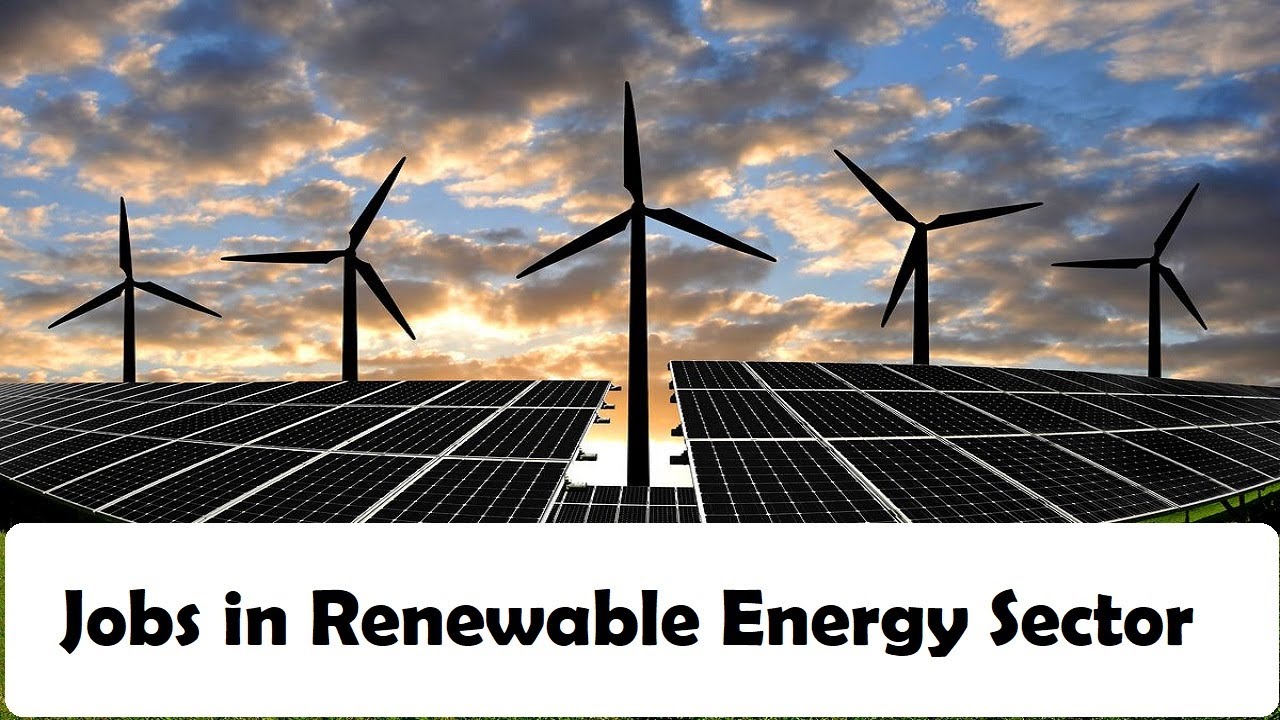
Understanding Sustainability in Careers
In today’s world, the concept of sustainability is no longer just a buzzword; it has become a necessary focus for individuals and organizations alike. A sustainable career not only aims to minimize environmental impact but also contributes to the social and economic well-being of communities. It is essential to understand that sustainability encompasses various sectors, and one of the most promising fields is renewable energy.
What is a Sustainable Career?
A sustainable career is one that aligns with the principles of sustainability, addressing the needs of the present without compromising the ability of future generations to meet their own needs. This can involve various sectors, such as:
- Renewable Energy
- Environmental Conservation
- Green Building and Architecture
- Sustainable Agriculture
- Corporate Social Responsibility
Why Choose a Sustainable Career?
Choosing a sustainable career offers numerous benefits:
- Positive Impact: Contributing to environmental conservation and societal well-being.
- Job Stability: The demand for sustainable practices is on the rise, leading to job security.
- Personal Fulfillment: Working towards a cause that aligns with your values can lead to greater job satisfaction.
- Innovation: Engaging in a field that promotes innovation and new technologies.
Exploring Renewable Energy Systems Jobs
The field of renewable energy offers a plethora of career opportunities that are not only rewarding but also crucial for the planet’s future. Here are some of the key job roles in this sector:
1. Solar Energy Technician
A solar energy technician installs and maintains solar panels and systems. This role requires technical skills and knowledge of electrical systems. With the increasing adoption of solar energy, the demand for technicians is growing rapidly.
2. Wind Energy Engineer
Wind energy engineers design, develop, and maintain wind turbines. They work to improve efficiency and reduce costs associated with wind energy production. This role often involves a strong background in mechanical or electrical engineering.
3. Energy Auditor
An energy auditor assesses energy consumption in buildings and provides recommendations for improvement. This role is vital for businesses looking to reduce costs and improve their sustainability practices.
4. Renewable Energy Project Manager
A project manager in renewable energy oversees the planning, execution, and completion of energy projects. They coordinate teams, manage budgets, and ensure that projects are completed on time and within scope.
5. Environmental Scientist
Environmental scientists study the environment and develop solutions to environmental problems. They often work in renewable energy sectors to assess the environmental impacts of new projects and technologies.
Educational Pathways for a Sustainable Career
To pursue a career in sustainability and renewable energy, it’s essential to have the right educational background. Here are some common pathways:
1. Degrees in Environmental Science
A degree in environmental science provides a comprehensive understanding of ecological systems and sustainability practices. This background is valuable for various roles in the renewable energy sector.
2. Engineering Degrees
Engineering degrees, especially in mechanical, electrical, or civil engineering, are highly relevant for careers in renewable energy. These programs often include courses in energy systems and sustainable design.
3. Specialized Renewable Energy Programs
Many universities now offer specialized programs in renewable energy. These programs focus specifically on solar, wind, and other renewable technologies, preparing students for the unique challenges of the field.
4. Certifications and Training
Certifications in specific technologies, such as solar panel installation or energy auditing, can enhance your qualifications and make you more competitive in the job market.
Skills Needed for a Sustainable Career
In addition to formal education, certain skills are crucial for success in a sustainable career:
- Technical Skills: Proficiency in relevant technologies and systems.
- Analytical Skills: Ability to analyze data and make informed decisions.
- Project Management: Skills to manage projects effectively and efficiently.
- Communication Skills: Ability to convey ideas and collaborate with diverse teams.
- Problem-Solving: Capacity to develop innovative solutions to complex challenges.
Networking in the Renewable Energy Sector
Building a professional network is vital for career advancement in the renewable energy sector. Here are some tips for effective networking:
- Join Professional Organizations: Become a member of organizations such as the American Solar Energy Society or the Wind Energy Association.
- Attend Conferences: Participate in industry conferences to meet professionals and learn about the latest trends.
- Utilize Social Media: Use platforms like LinkedIn to connect with industry leaders and engage in relevant discussions.
- Seek Mentorship: Find mentors who can provide guidance and support as you navigate your career path.
Challenges in Pursuing a Sustainable Career
While pursuing a sustainable career can be fulfilling, it is not without its challenges:
- Job Competition: As the field grows, so does competition for available positions.
- Technological Changes: Rapid advancements in technology require continuous learning and adaptation.
- Funding and Resources: Some sustainable initiatives may face challenges in securing funding and resources.
The Future of Sustainable Careers
The future of sustainable careers looks promising as global awareness of climate change and environmental issues continues to rise. Governments, businesses, and individuals are increasingly investing in renewable energy and sustainable practices, leading to:
- Job Growth: The renewable energy sector is expected to create millions of new jobs worldwide.
- Innovation: Continuous advancements in technology will lead to new career opportunities and fields.
- Global Collaboration: Increased international cooperation to tackle climate change will foster new partnerships and initiatives.
Conclusion
Embarking on a sustainable career in the renewable energy sector is not only a wise choice for your professional future but also a critical contribution to the health of our planet. By understanding the various roles available, pursuing the necessary education, and developing key skills, you can position yourself for success in this dynamic and impactful field. Remember, every effort counts, and your commitment to sustainability can make a significant difference in creating a better world for future generations.

